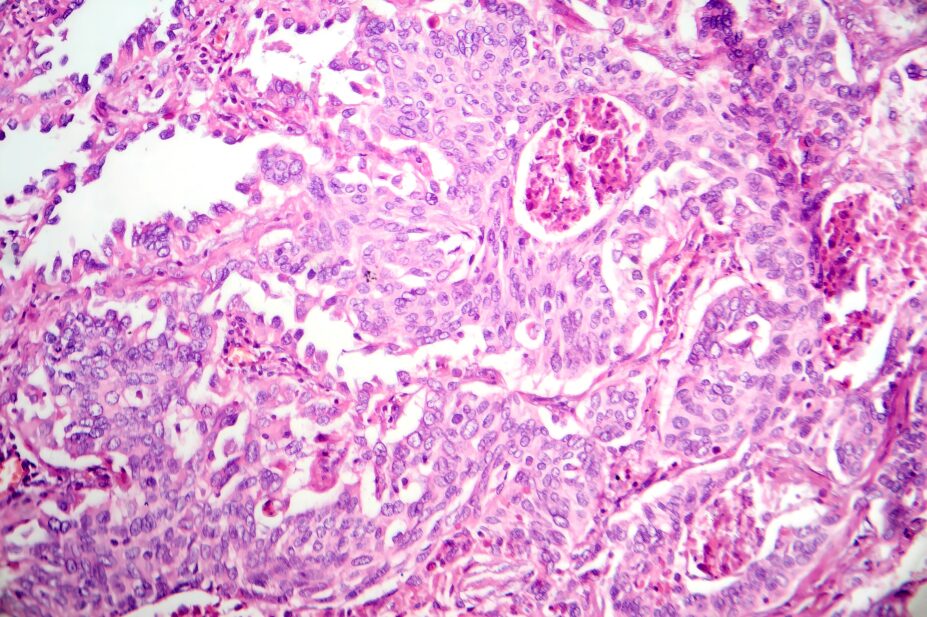
Shutterstock.com
Clinical trial results, presented at the World Conference on Lung Cancer in Barcelona, Spain, on 6–9 September 2025, offer hope for patients with lung cancer.
Antibody drug conjugates for non-small cell lung cancer
While patients with epidermal growth factor receptor (EGFR) concomitant mutations have typically faced a poor prognosis, with no standard treatment regimen in clinical practice, the ACROSS 2 Phase III trial demonstrated that aumolertinib, combined with platinum-pemetrexed chemotherapy, significantly improves progression-free survival compared with aumolertinib monotherapy.
Meanwhile, final analysis of overall survival from the Phase III FLAURA2 trial demonstrated that first-line osimertinib (Tagrisso; AstraZeneca) plus chemotherapy significantly improves overall survival compared with osimertinib monotherapy in patients with EGFR-mutated (EGFRm) advanced non-small cell lung cancer (NSCLC) — with a median overall survival of nearly four years. Osimertinib with pemetrexed and platinum-based chemotherapy is recommended by NICE as an option for untreated advanced NSCLC in adults whose tumours have EGFR exon 19 deletions or exon 21 (L858R) substitution mutations.
Further reading
Targeted treatments for disease progression after TKIs
For patients whose disease had progressed on tyrosine kinase inhibitors (TKIs), adding ivonescimab, a first-in-class bispecific antibody targeting both PD-1 and VEGF, to chemotherapy could significantly prolonge progression-free survival, while zidesamtinib, an investigational next-generation ROS1 TKI designed to be brain-penetrant and TKI-sparing, demonstrated clinically meaningful activity and durability in patients with ROS1-positive (ROS1+) NSCLC.
Results from a promising Phase I trial, also presented at the conference, suggest that that BMS-986504, a first-in-class methylthioadenosine (MTA)-cooperative protein arginine methyltransferase 5 (PRMT5) targeting agent, could offer hope for patients with EGFR and ALK alterations who had previously progressed on targeted therapies.
The conference also showcased results from a Phase IIa trial that used an experimental viral immunotherapy — CAN-2409 — to demonstrate encouraging long-term survival outcomes patients with advanced NSCLC, who had previously failed to respond adequately to immune checkpoint inhibitors.
Further reading
First human dose of small cell lung cancer treatment
Early stage research presented at the conference also showed promising results for patients with small cell lung cancer.
In a Phase 1b trial, tarlatamab with anti-PD-L1 therapy demonstrated unprecedented overall survival as a first-line maintenance treatment for patients with extensive stage small cell lung cancer. Meanwhile, “encouraging early data support further investigation of SHR-4849 as a potential treatment for patients with DLL3-positive relapsed SCLC,” according to LinLin Wang, researcher at Affiliated Cancer Hospital of Shandong First Medical University, Jinan, China, who led the first-in-human trial of the therapy.


